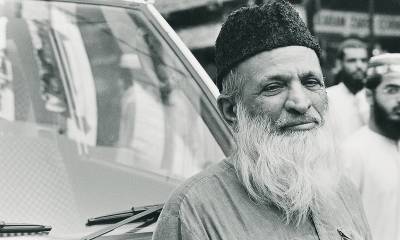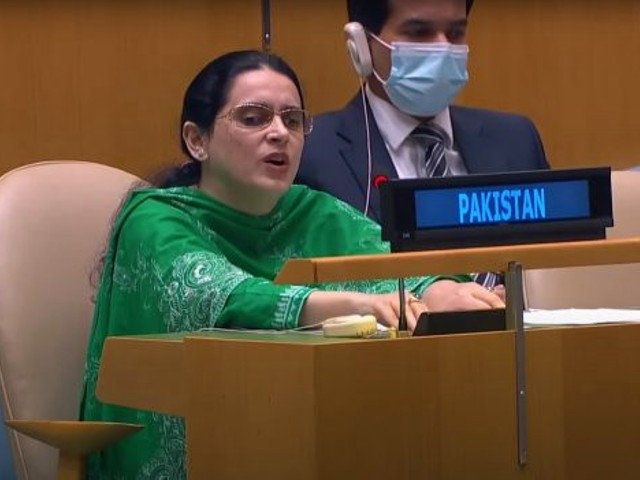ghazi52
Think Tank Analyst
- Mar 21, 2007
- 114,572
- 165,500
- Country of Origin

- Country of Residence

From mountains to space:
2023 was full of ‘first’ feats for Pakistanis
From risky summits to representing Pakistan in media to women and minorities making themselves heard locally, this year has been historic.Muskaan Mujahid
December 26, 2023
The outgoing year has been full of achievements for Pakistanis, especially women, who have broken barriers and achieved numerous ‘firsts’ in their respective fields.
From accomplishing dangerous feats on mountain peaks to representing Pakistan internationally in the media, and with women and minorities making their voices heard locally, this year has been historic.
Dawn.com examines some of these milestones across various walks of life, which have left us beaming with pride.
Sports
Imagine becoming the first Pakistani woman climber to summit 10 peaks above 8,000 metres — renowned mountaineer Naila Kiani achieved that in reality this year. She also became the only Pakistani to ascend seven peaks above 8,000m in six months.Listed below are her achievements and those of other mountaineers throughout 2023.
April: Mountaineer Sajid Ali Sadpara became the first Pakistani to scale Nepal’s Annapurna peak — the world’s 10th-highest peak standing 8,091m tall — without the support of high-altitude porters and supplemental oxygen.
Days later, Kiani became the first Pakistani woman to climb Annapurna.
May: Sadpara scaled the world’s tallest peak, 8,849m-tall Mount Everest, in Alpine style — without supplemental oxygen or any porter support.
Two days later, Kiani and Nadia Azad became the first two Pakistani women climbers to scale Lhotse, the world’s fourth-highest peak at 8,516m in Nepal.
July: Kiani (yes, again) and Samina Baig attained the feat of becoming the first Pakistani women to summit the world’s ninth-highest peak, the 8,125m-tall Nanga Parbat.
Kiani set another record the same month, becoming the first Pakistani woman to summit Broad Peak, the world’s 12th-highest mountain at 8,051m.
September: Shehroze Kashif secured the title of being the youngest climber in the world to summit 12 peaks above 8000m as he ascended Nepal’s Manaslu, the world’s eighth-highest mountain at 8,163m.
The same week, Lahore-based Ahmed Uzair and Anum Uzair became the first Pakistani couple to summit Manaslu.
October: Kiani and Sirbaz Khan became the first Pakistani duo to summit the 8,201m-tall Cho Oyu, the world’s sixth-highest peak in China’s Tibet.

Saud Shakeel plays a shot during the final cricket Test match between Pakistan and Sri Lanka in Colombo on July 26, 2023. — AFP/File
Speaking of other sports, batter Saud Shakeel set a world record in July by becoming the first player in Test history to score more than 50 runs in each of his first seven matches.
Pakistan’s women cricketers also shone this year, making history by registering their maiden win over New Zealand not just in the first T20 International but also in the one-day format.
Earlier this year, wicketkeeper-batter Muneeba Ali became the first Pakistani woman to score a T20I century and only the sixth to score one in a T20 World Cup.
In javelin-throwing, Arshad Nadeem won the country’s first-ever medal at the World Athletics Championships as he secured second place in the final in August.
We may not be abiding by the “first” criteria here but it merits a mention that Hamza Khan won the World Junior Squash Championship 2023, becoming the country’s first to do so since 1986.
Entertainment
Pakistanis did not shy away from exhibiting their love for arts and media either as they set new records.
Arooj Aftab performs at Grammy Awards 2023 in Los Angeles, US on Feb 5, 2023 — Screengrab from Recording Academy via Arab News
After becoming the first Pakistani to win the prestigious Grammy Award last year, Arooj Aftab in February also became the first artist from the country to perform at the Grammys.
Also in February, streetwear label Rastah became the first Pakistani brand to showcase at the London Fashion Week, where it unveiled its ‘VOLUME IX’ collection.
In April, Oscar-winner Sharmeen Obaid-Chinoy was announced as the director for the latest Star Wars film, making her the first woman and person of colour to direct a film in the franchise.
In September, the first-ever art exhibition of Pakistani artists was organised in Hungary’s Budapest by the Pakistani embassy there.
Later the same month, Erica Robin, a 24-year-old Christian from Karachi, was crowned as the first-ever ‘Miss Universe Pakistan’ — a win that led to criticism from certain circles but praise from many.
She went on to represent the country for the first time in the global Miss Universe pageant held in November.
Women and minorities in Pakistan
Shifting focus to a different category of ‘firsts’, women and minorities in Pakistan made significant strides toward achieving parity with men.
Justice Musarrat Hilali takes oath as Peshawar High Court chief justice on April 1. — File photo
In February, the Lahore High Court Bar Association got its first woman secretary since its inception in 1893 following Sabahat Rizvi’s election.
The bar elected Rabbiya Bajwa as the vice president in another record of simultaneously making two women represent it in the cabinet.
In April, Justice Musarrat Hilali was sworn in as the first woman chief justice of the Peshawar High Court. She then went on to become the Supreme Court’s second woman judge.
In July, the PPP’s Sadia Danish was elected unopposed as the first woman deputy speaker of the Gilgit-Baltistan Assembly.
Days later, Muttahida Qaumi Movement-Pakistan’s lawmaker Rana Ansar became the first-ever woman opposition leader in the Sindh Assembly after the PTI’s Haleem Adil Sheikh was removed from the position.
In a sports-related development, 28-year-old Hijab Zahid became the first woman general manager in the history of the Pakistan Super League after she was hired by Multan Sultans for the position.
In September, the Supreme Court got its first female registrar after newly sworn-in Chief Justice of Pakistan Qazi Faez Isa appointed Okara Additional District and Sessions Judge Jazeela Aslam to the role.
The next month, girls in Khyber Pakhtunkhwa’s Swat played the “first-ever” women’s cricket match in the Kabal tehsil despite facing restrictions and roadblocks.
Other religious and gender minorities also blazed new trails, as Samreen Amir was appointed as KP’s first Christian woman additional station house officer.
At the outset of the year, the transgender community was formally included in the Benazir Income Support Programme, being the first instance of a marginalised group getting rights in the program.
Months later, Shahzadi Rai and Chandni Shah became the first transgender members of the Karachi Metropolitan Corporation City Council after being elected on reserved seats.
In November — almost a week before the country’s only second Moorat March — the transgender community gathered in Karachi to hold the first ‘Hejra Festival’, aiming to clear misconceptions about them.
Other professions
In July, a newly unveiled wax figure of former prime minister Benazir Bhutto became the first of a Pakistani personality at Madame Tussauds’ museum in Dubai.The Pakistani diaspora abroad got representation as British-Pakistani diplomat Fouzia Younis in March became the first British Muslim to be appointed the consul general to Toronto.
In October, Namira Salim made history by becoming the first Pakistani to reach space.

From mountains to space: 2023 was full of ‘first’ feats for Pakistanis
From risky summits to representing Pakistan in media to women and minorities making themselves heard locally, this year has been historic.
www.dawn.com






